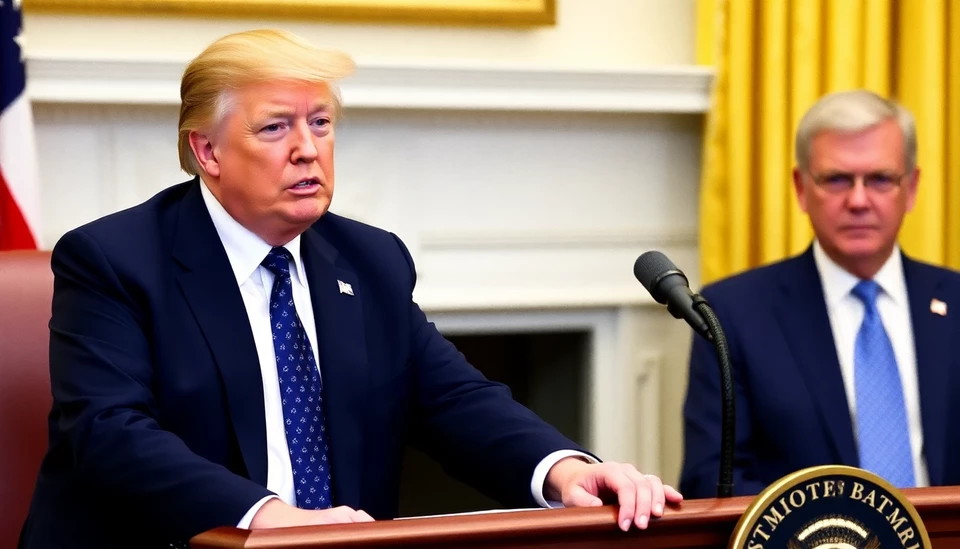
In a striking comment on the current state of the U.S. economy, former President Donald Trump has publicly urged Federal Reserve Chairman Jerome Powell to consider slashing interest rates. His warning comes amid concerns that the economy is showing signs of slowing, which, according to Trump, could harm consumer spending and overall economic growth.
Speaking at a recent rally, Trump emphasized that maintaining lower interest rates is critical for stimulating growth and encouraging borrowing among businesses and consumers. He cautioned that if the Federal Reserve does not take action soon, the country may face serious economic repercussions. "If Powell doesn’t act, you’re going to see this economy start to slow down—and it’s going to hit all Americans,” Trump said, echoing sentiments that many of his supporters believe reflect the sentiment of a struggling middle class.
Trump’s comments arrive at a time when inflation rates have eased slightly, but interest rates remain higher than many would prefer. With the Fed having enacted a series of rate hikes in the previous year to combat inflation, there is growing pressure from both sides of the political aisle to reconsider these moves. Critics argue that high rates can stifle economic growth and hinder businesses from expanding and creating jobs.
The former president has long been an outspoken critic of Powell and the Federal Reserve's policies, particularly when they do not align with his vision for economic strength. His call for lower rates aligns with a broader narrative frequently voiced by members of his party who are anxious about the potential for a recession ahead of the upcoming elections.
Trump's warning highlights a critical issue that many economists are currently debating: the balance between curbing inflation and fostering economic growth. Proponents of lower interest rates argue that they can stimulate spending and investment, while those in favor of keeping rates high warn that it could lead to a resurgence of inflation, which was a significant challenge over the last few years.
As the Fed prepares for its next meeting, all eyes are on Powell and his decision-making. Should he heed Trump’s warning and cut rates, it could set off a new wave of discussion about the Fed’s mandate and its role in steering the economy. Conversely, maintaining the current course could spark backlash from those feeling the pinch of higher borrowing costs.
In the lead-up to the meeting, market analysts are carefully monitoring economic indicators, including employment rates, consumer confidence, and inflation measures. Given the volatility seen in recent months, any decision by the Federal Reserve is sure to draw significant scrutiny and could have ripple effects throughout the financial landscape.
As Trump continues to advocate for lower rates, the economic discourse within the country promises to remain heated, with diverse opinions on the best path forward. Whatever decision the Federal Reserve makes, it will likely have lasting implications for the U.S. economy as it heads into a crucial election cycle.
In conclusion, while Trump’s call for lower rates aims to galvanize action addressing a potential economic slowdown, it raises larger questions about fiscal policy and the balance of power between political leaders and the nation's financial regulators. Only time will tell how Powell and the Fed will respond.
#Trump #FederalReserve #InterestRates #Economy #Inflation #ConsumerSpending #RateCuts #EconomicGrowth #JeromePowell
Author: Laura Mitchell




